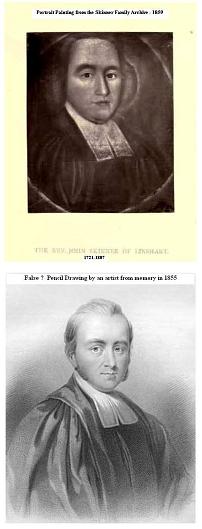1. And gie's a song, the lady cry'd,
And lay your disputes a' aside
What signifies't for folks to chide
For what was done before them
Let Whig and Tory a' agree
Whig and Tory, Whig and Tory
Whig and Tory a' agree
To drop their Whig-malorum
Let Whig and Tory all agree
To spend the night in mirth and glee
And cheerful sing alang wi' me
The Reel o' Tullochgorum. [1]
2. O Tullochgorum's my delight,
It gars us a' in ane unite
And ony sumph that keeps up spite,
In conscience I abhor him
For blythe and merry we'll be a'
Blythe and merry, blythe and merry
Blythe and merry we'll be a',
And make a happy quorum
For blythe and merry we'll be a'
As lang as we hae breath tae draw
And dance till we be like to fa',
The Reel o' Tullochgorum
3. Let warldly worms their minds oppress,
Wi' fears o' want and double cess
And sullen sots themselves distress
Wi' keeping up decorum
Shall we sae sour and sulky sit?
Sour and sulky, sour and sulky
Sour and sulky shall we sit,
Like auld Philosophorum?
Shall we sae sour and sulky sit,
With neither sense, nor mirth, nor wit
Nor ever rise to shake a fit
To the Reel o' Tullochgorum?
4. What needs there be sae great a fraise
Like dringing dull Italian lays [2]
I wadna gie our ain strathspeys
For half a hunder score o' them
They're dowf and dowie at the best
Dowf and dowie, dowf and dowie
Dowf and dowie at the best
Wi' a' their variorum
They're dowf and dowie at the best,
Their allegros and a' the rest
They canna please a Highland taste
Compar'd wi' Tullochgorum.
5. May choicest blessings aye attend
Each honest open-hearted friend
And calm and quiet be his end,
And a' that's good watch o'er him
May peace and plenty be his lot
Peace and plenty, peace and plenty
Peace and plenty be his lot,
And dainties a great store o' them
May peace and plenty be his lot
Unstain'd by any vicious plot
And may he never want a groat
That's fond o' Tullochgorum.
6. But for the discontented fool,
Who loves to be oppression's tool
May envy gnaw his rotten soul
And discontent devour him!
May dool and sorrow be his chance,
Dool and sorrow, dool and sorrow
Dool and sorrow be his chance,
And honest souls abhor him
May dool and sorrow be his chance
And a' the ills that come frae France [3]
Whae'er he be that winna dance
The Reel o' Tullochgorum
|
1. Une chanson! s'écria-t-elle,
Et laissez-là tous vos débats;
A quoi riment donc vos querelles
Sur les tragédies d'autrefois?
Que les Whigs et Tories s'accordent,
Whigs et Tories, Whigs et Tories,
Que Whigs et Tories s'accordent
Pour fuir ce capharnaüm.
Que les Whigs et Tories s'accordent
Ce soir, soyons gais et réjouis
Et avec moi, chantez aussi
Le Reel de Tullochgorum!
2. Tullochgorum, danse opportune
Pour ressouder notre unité.
Seul un sot vit dans la rancune:
Du fond de mon cœur, je le hais.
Car l'instant est à l'allégresse
A l'allégresse et à la joie.
Car l'instant est à l'allégresse,
Chantons: "Nunc est bibendum!"
Car l'instant est à l'allégresse,
Tant qu'un faible souffle nous reste
Dansons d'un pas léger et leste,
Le Reel de Tullochgorum! [1]
3. Laissez donc à ses vains soucis,
A ses craintes de banqueroutes,
Le fou hargneux qui se punit
Empesé dans son décorum.
Resterons-nous donc à bouder?
D'humeur amère, d'humeur amère
Resterons-nous donc à bouder?,
Drapés dans d'antiques péplums?
Resterons-nous donc à bouder?
Privés de sens et de gaité
Refusant jusqu'à nous lever
Pour le Reel de Tullochgorum?
4. Et foin des danses d'apparat
Et des grâces italiennes [2]
Car un seul Strathspey, croyez-moi,
En vaut à lui seul des centaines.
Ces danses tristes à mourir,
Ah, quel ennui, ah, quel ennui!
Ces danses tristes à mourir,
Avec leurs variorum.
Ah, quel ennui, ah, quel ennui!
Allegros et pizzicati
Ne plaisent guère aux gens d'ici,
Fervents du Tullochgorum.
5. Les plus douces félicités
Soient réservées au cœur honnête.
Et quand son heure aura sonné,
Que le salut soit sur sa tête!
Puisse la paix être son lot
A profusion, à profusion,
Puisse la paix être son lot,
Et tout ce qui peut plaire à l'homme.
Puisse la paix être son lot,
Et le protéger des complots.
Qu'il paye toujours son écot
L'ami du Tullochgorum.
6. Et quant à l'imbécile aigri,
Qui se veut instrument de haine
Que l'envie ruine son esprit
Qu'il soit dévoré par la peine!
A lui le chagrin, la malchance,
Peine et chagrin, peine et chagrin
A lui le chagrin, la malchance,
Les cœurs purs de lui se détournent!
A lui le chagrin, la malchance,
Tous les maux qui viennent de France [3]
Qui qu'il soit, qui boude la danse,
Le Reel de Tullochgorum!
Trad Chr. Souchon (c) 2005
|


